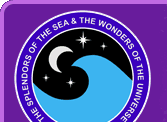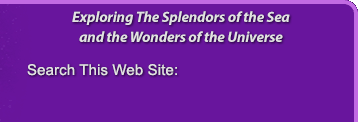
Throughout the ages, people have looked to the skies and wondered at its mysteries. During the last few centuries, a few have stood out amongst the rest and advanced our knowledge about the universe in which we live. These are the famous astronomers have made the most remarkable contributions to the science of astronomy. Click here for a list of credits and sources.
Nicolaus Copernicus
Astronomer and father of the heliocentric (sun-centered) theory of the Solar System, commonly known as the Copernican system, considered to be the father of modern astronomy.
Astronomer and father of the heliocentric (sun-centered) theory of the Solar System, commonly known as the Copernican system, considered to be the father of modern astronomy.
Tycho Brahe
Alchemist, astronomer, supporter of the geocentric theory of the Solar System, designer and builder of astronomical instruments, made some of the most accurate observations of planetary positions.
Alchemist, astronomer, supporter of the geocentric theory of the Solar System, designer and builder of astronomical instruments, made some of the most accurate observations of planetary positions.
Galileo Galilei
Astronomer, mathematician, professor of mathematics, first to observe the moons of Jupiter and the rings of Saturn with a telescope. Supporter of the heliocentric view of the Solar System.
Astronomer, mathematician, professor of mathematics, first to observe the moons of Jupiter and the rings of Saturn with a telescope. Supporter of the heliocentric view of the Solar System.
Johannes Kepler
German astronomer, first supporter of the heliocentric theory, first to realize the relationship between the Sun and the velocities of the planets, discoverer of the three laws of planetary motion.
German astronomer, first supporter of the heliocentric theory, first to realize the relationship between the Sun and the velocities of the planets, discoverer of the three laws of planetary motion.
Edmond Halley
English astronomer and mathematician, savilian professor of geometry at Oxford, first to detect the proper motion of stars. Discovered the 76-year cycle comet that bears his name.
English astronomer and mathematician, savilian professor of geometry at Oxford, first to detect the proper motion of stars. Discovered the 76-year cycle comet that bears his name.
Sir Isaac Newton
Mathematician, physicist, and inventor of calculus, formulator of the three fundamental laws of motion also known as Newton's laws, considered to be one of the greatest scientists in history.
Mathematician, physicist, and inventor of calculus, formulator of the three fundamental laws of motion also known as Newton's laws, considered to be one of the greatest scientists in history.
Charles Messier
Discoverer of 15 comets, creator of the Messier Catalog which contains the locations and detailed descriptions of 110 of the brightest deep sky objects in the universe.
Discoverer of 15 comets, creator of the Messier Catalog which contains the locations and detailed descriptions of 110 of the brightest deep sky objects in the universe.
William Herschel
British astronomer composer, and telescope builder, discovered the planet Uranus and two of its moons as well as two moons of Saturn, compiled a catalog of 2,500 deep sky objects that is still used today.
British astronomer composer, and telescope builder, discovered the planet Uranus and two of its moons as well as two moons of Saturn, compiled a catalog of 2,500 deep sky objects that is still used today.
Maria Mitchell
(New)
Astronomer, librarian, naturalist, and educator, first American woman to work as a professional astronomer, Discoverer of comet C/1847 T1, also known as "Miss Mitchell's Comet."
Astronomer, librarian, naturalist, and educator, first American woman to work as a professional astronomer, Discoverer of comet C/1847 T1, also known as "Miss Mitchell's Comet."
Percival Lowell
Founder of the Lowell Observatory in Flagstaff, Arizona, strong supporter of the theory of canals on the planet Mars, first to realize the possibility of a ninth planet beyond the orbit of Neptune.
Founder of the Lowell Observatory in Flagstaff, Arizona, strong supporter of the theory of canals on the planet Mars, first to realize the possibility of a ninth planet beyond the orbit of Neptune.
Edwin Hubble
Discovered the existence of galaxies outside our own Milky Way galaxy, observed that galaxies move faster away from us as their distance increases, proving that the universe is expanding.
Discovered the existence of galaxies outside our own Milky Way galaxy, observed that galaxies move faster away from us as their distance increases, proving that the universe is expanding.
Albert Einstein
Theoretical physicist who formulated the theory of relativity which revolutionized modern astrophysics, received the Nobel Prize in 1921 for his 1905 work on the photoelectric effect.
Theoretical physicist who formulated the theory of relativity which revolutionized modern astrophysics, received the Nobel Prize in 1921 for his 1905 work on the photoelectric effect.
Carl Sagan
Astronomer, astrophysicist, cosmologist, author of Cosmos, winner of the Oersted Medal and other awards including eighteen honorary degrees from American colleges and universities.
Astronomer, astrophysicist, cosmologist, author of Cosmos, winner of the Oersted Medal and other awards including eighteen honorary degrees from American colleges and universities.
Stephen Hawking
Theoretical physicist, cosmologist, Director of Research at the Centre for Theoretical Cosmology within the University of Cambridge, author of the bestseller, A Brief History of Time.
Theoretical physicist, cosmologist, Director of Research at the Centre for Theoretical Cosmology within the University of Cambridge, author of the bestseller, A Brief History of Time.
Michio Kaku
American theoretical physicist, author, and popularizer of science, co-founder of the string field theory, visiting professor at the Institute of Advanced Study in Princeton and New York University.
American theoretical physicist, author, and popularizer of science, co-founder of the string field theory, visiting professor at the Institute of Advanced Study in Princeton and New York University.
Neil deGrasse Tyson
American astronomer, astrophysicist, and science communicator, director of the Hayden Planetarium and the Rose Center for Earth and Space, affectionately known as the man who killed Pluto.
American astronomer, astrophysicist, and science communicator, director of the Hayden Planetarium and the Rose Center for Earth and Space, affectionately known as the man who killed Pluto.



